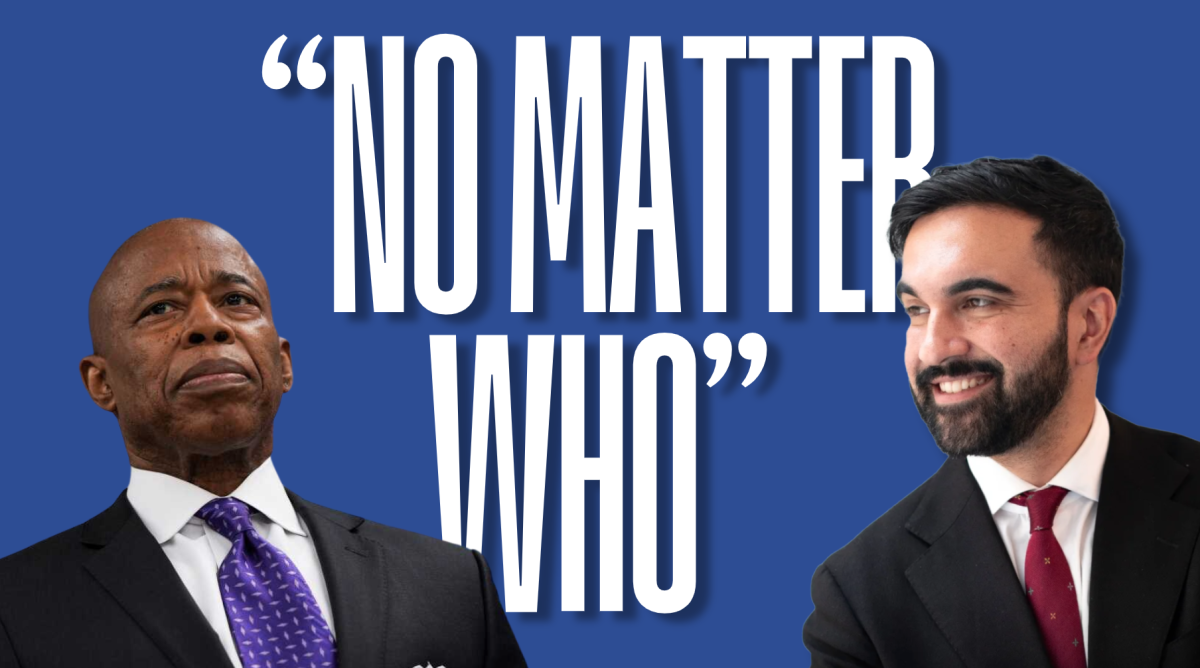By Olivia Balsamo
The enactment of Dartmouth’s new rules would ban hard liquor everywhere on campus, including Greek houses. Elizabeth Zanghi/The Fordham Ram
On Jan. 29, Dartmouth College President Philip J. Hanlon made waves with his announcement to begin curbing dangerous behavior on campus, beginning with a ban on hard liquor, forbidding pledging at fraternities and sororities and requiring all students to undergo a four-year sexual violence prevention program.
In addition to Hanlon, senior media relations officer Amy Olsen has offered her perspective, stating, “policy and enforcement are highly correlated with a substantial reduction in consumption and many fewer negative consequences,” and administrators “are especially concerned with the high risks posed by over consumption of hard alcohol and believe this is a responsible step to deal with this risk.”
When you graze the surface of this ban, it seems as though this is a valiant attempt on Hanlon’s part to keep students safe. Dig a little deeper, however, and its hypocrisy is increasingly clear.
The recently elected president introduced these sweeping changes at a rather convenient time, as Dartmouth is one of many schools currently under investigation by the Department of Education for a failure to properly combat on-campus sexual assaults.
In his supposed effort to ignite conversation about sexual violence, President Hanlon has unintentionally unveiled a dirtier question: why are college administrators only beginning to care about sexual assault now that they have been caught doing nothing about it?
Hanlon’s ban on hard liquor and his administration’s feigned concern are useless attempts to curb sexual assault.
The ban has a host of problems, the first being that students will always find access to plenty of resources besides hard liquor to intoxicate themselves. Secondly, students will without a doubt never follow the ban’s regulations — and why should they ever be expected to?
In the award-winning documentary “The Ivory Tower,” director Andrew Rossi highlights one of the most pressing issues in American universities: their presentation. On Dartmouth’s website, the school boasts prestigious opportunities for education, successful legacies and millions of dollars in endowments. However, that is not the only aspect of college in which students are interested. Students have become less interested in academics, and more interested in achieving what has been dubbed “the college experience:” wild nights, drunken parties, sexual experimentation, and best of all, freedom from a parent’s watchful eye.
New York Times writer Richard Péréz-Peña notes, “despite Dartmouth’s prominence as a member of the Ivy League, experts say not to expect many institutions, if any, to follow its lead,” for a multitude of reasons. Students will seek other places to consume hard liquor, such as binge drinking off campus.
Secondly, and most important, is the ever-pervasive concept that “kids will be kids” — the expectation that once you are in college, you are bound to drink yourself into oblivion. Therefore, university administrators might as well make campus as safe as possible so students can do just that.
Alcohol has become an advertising lure for universities across the U.S., including Fordham. “Colleges do advertise their party scene to you, but do it somewhat subtly,” says Cory Huff, FCRH ’18. “Rather than blatantly stating that they have a lot of drinking, they might advertise that students ‘get really into their sports,’ or ‘really love supporting their school.’ Come on.”
Additionally, she states that Fordham is one of those schools that has chosen not to advertise the option of sobriety on campus: “There are not many options for students who choose not to drink. What about the people who just want to dance? Or have 50s themed movie nights? People who want to cook? You can do those things, but you’re on your own with it.”
Huff continued, “Alcohol may make sexual assault perhaps more of a possibility, because of the victim’s or assailant’s altered state, but alcohol is not the reason that sexual assault occurs. Ultimately, campuses will remain the same.” Fellow classmate Kate Burns, FCRH ’18, agrees, stating “a ban on alcohol and drug consumption will not alleviate problems at all, and sexual assault will more than likely continue as well.”
The problems that Hanlon is trying to conquer are not entirely the consequences of alcohol consumption — the problem is with administrators for placing the blame of sexual assault on the drinking culture, for ignoring bad behavior until they fall under scrutiny, and for expecting radical change to occur country-wide, when the repercussions are on their shoulders.
Olivia Balsamo, FCRH ’18, is an English major from Ridgefield, CT.








































































































































































































